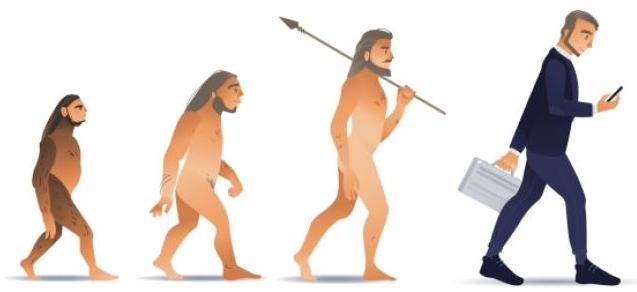Racist and sexist depictions of human evolution still permeate a broad range of cultural materials in popular media, education, and science, according to a new study led by Rui Diogo, an associate professor in the College of Medicine and Fatimah Jackson, a biology professor and director of the Cobb Research Laboratory at Howard University in Washington, D.C.
The authors of the paper studied a wide range of depictions of evolution: images from scientific research articles, museums and cultural heritage sites, documentaries and TV shows, medical textbooks, and even educational materials seen by millions of kids worldwide. They found that images depicting human development are commonly organized by skin color with the darkest figure representing the barbaric, uncivilized early humans and a White male figure representing where humanity has currently evolved to.

“We continue to see, not only in popular culture but also in museums and textbooks, depictions of human evolution as a linear trend from darker and supposedly more ‘primitive’ human beings to more ‘civilized’ ones with a lighter tone of skin,” Dr. Diogo notes.
“Retentions of White and male supremacy in evolutionary biology effectively exclude the participation of non-white, non-males in these areas,” added Dr. Jackson. “The deeply embedded bias in depictions of normalcy thwarts the aspirations, investments, and engagements of those who have been routinely excluded.”
The full study, “Not Just in the Past: Racist and Sexist Biases Still Permeate Biology, Anthropology, Medicine, and Education,” was published on the website of the journal Evolutionary Anthropology. It may be accessed here.

